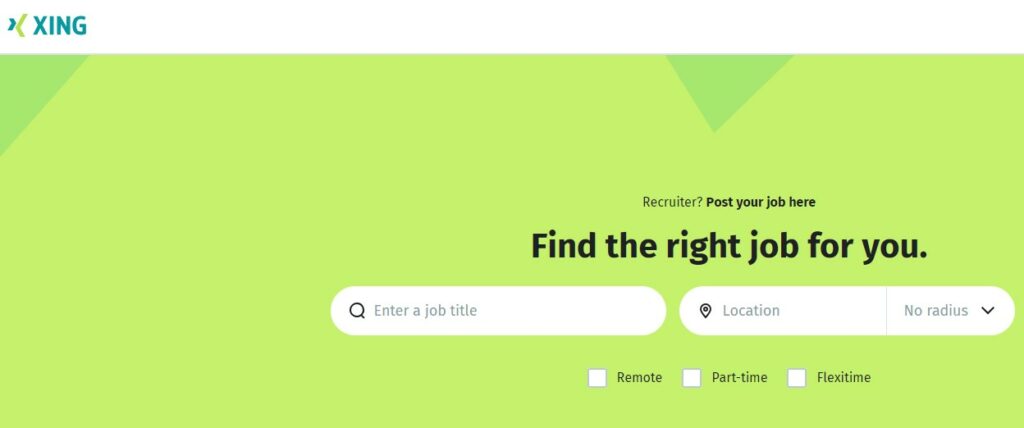If you want to look for LinkedIn alternatives but do not know where to find them, this article can help you.
LinkedIn has long been the go-to platform for professionals looking to network, find jobs, or cultivate their career pathways.
With its vast user base and array of features, it’s no surprise that it has dominated the professional networking space for years.
However, as you navigate the evolving job market and digital landscape of 2024, you may find yourself seeking alternatives that cater more specifically to your networking needs, skill set, or industry.
The online space is brimming with innovative platforms designed to connect professionals, share opportunities, and foster collaborations.
These LinkedIn alternatives often address niche markets or introduce new functionalities to help users like you leverage their professional relationships and find success.
Whether you’re a creative looking for no-collar networks or a tech enthusiast seeking industry-specific connections, diversifying your professional networking tools can open doors to new possibilities.
Exploring these alternative platforms can also be a strategic move for your personal brand, allowing you to showcase your skills in new environments and reach audiences that are more aligned with your career goals.
Some offer event management tools, others highlight job opportunities in various niches, and a few are designed to help professionals share news and resources efficiently.
It’s all about finding the right fit for your professional journey.
Popular LinkedIn Alternatives
In your professional journey, exploring LinkedIn alternatives can open up new networking opportunities and career prospects.
1. Xing

Xing is a European-based professional networking site where you can discover industry insights and connect with professionals.
Tailored more towards a German-speaking audience, Xing also offers job listings and company reviews.
2. Bark

Bark takes a different approach to professional services.
It’s designed to connect customers with local service providers.
If you offer a service, Bark can help you find clients without the long search.
3. Meetup

Meetup allows you to engage with professionals in your field offline.
It focuses on creating groups that meet in person, encouraging you to build relationships through events and gatherings in your local area.
4. Opportunity

Opportunity is a networking site that uses an algorithm to help you find sales leads, job opportunities, and new connections.
It aims to match professionals based on mutual benefit, which could help you streamline your networking efforts.
Platform-Specific Advantages
When you explore alternatives to LinkedIn, you’ll find platforms that offer unique benefits tailored to your professional needs.
Niche Networking Opportunities
These platforms often provide specialized communities where you can connect with peers in your specific field.
For instance, AngelList shines for startups and tech job seekers, where you not only find job listings but can also tap into a network of investors and industry experts.
Unique User Interface and Experience
Every platform has its own look and feel, which can streamline your networking activities.
Meetup, for example, emphasizes local and in-person gatherings, laying out its interface to help you discover these events effortlessly.
You’ll be able to notice the difference from LinkedIn’s more traditional online networking layout.
Exclusive Industry Focus
Professionals in certain industries may require dedicated networking spaces.
Platforms like Bizzabo cater mainly to event organizers and marketers, centralizing tools for event management and audience engagement.
This specific focus can make your networking more effective compared to LinkedIn’s broader approach.
Considerations for Choosing an Alternative
When exploring alternatives to LinkedIn, it’s crucial to focus on what matters most in a professional networking platform.
Here’s what you should keep in mind:
Privacy and Data Security
Your privacy and the security of your data are paramount.
Evaluate each platform’s privacy policy and their measures for data protection.
Ensure they offer robust security features such as two-factor authentication and have a clear stance on data sharing with third parties.
User Base and Demographics
The value of a network is in its users.
Scrutinize the demographics of the user base to see if it aligns with your career goals.
The community should be relevant to your industry, offering opportunities to connect with like-minded professionals.
Costs and Membership Plans
Professional networks can vary greatly in their cost structure.
Review the membership options to understand what you get for free versus paid plans.
Consider if the benefits justify the cost and if there are any long-term commitments or hidden fees.
Integrations and Compatibility
When exploring alternatives to LinkedIn, you’ll want to consider how well these platforms integrate with other apps and whether they are accessible across various devices.
Third-Party App Integrations
One of the key things you should look for in a LinkedIn alternative is the ease of integration with third-party applications.
This means whether the platform can connect to your content management system (CMS), your email marketing tools, or your analytics suite.
For seamless workflow, a service like Angel List offers tools that allow employers to connect with candidates, which may integrate with other HR systems.
Mobile and Desktop Compatibility
It’s essential that your chosen networking platform offers robust mobile and desktop compatibility.
This means you can access your professional network and job opportunities anytime, anywhere, whether you’re on a smartphone or sitting at your desk.
Platforms like Xing provide you with such flexibility, ensuring you can network and engage with professionals on-the-go or from the comfort of your home office.
Key Takeaways
- Diverse Platforms: You have various options beyond LinkedIn for professional networking.
- Each platform offers unique features to cater to different networking preferences and objectives.
- Usage Stats: Notice that LinkedIn’s active monthly user base constitutes only a fraction of its total membership.
- Meanwhile, platforms like TikTok are emerging as unconventional yet viable networking tools.
- Specialized Networking: AngelList is an excellent resource if you’re immersed in the startup ecosystem, connecting startups and investors.
- Offline Networking: Meetup stands out for facilitating in-person connections.
- It allows you to find and engage with professionals in your local area through events and meetups.
- International Reach: Platforms like Viadeo and Xing offer international networking opportunities.
- They connect professionals across the globe and provide alternative features to LinkedIn.
- Industry-Specific Networks: Some platforms are more focused on specific sectors.
- They give you the opportunity to engage in deeper, more relevant conversations and build connections within your industry.
| Platform | Focus Area |
|---|---|
| AngelList | Startups and Investors |
| Meetup | Offline, Local Meetups |
| TikTok | Social Media Networking |
| Viadeo | International Networking |
| European Market |

